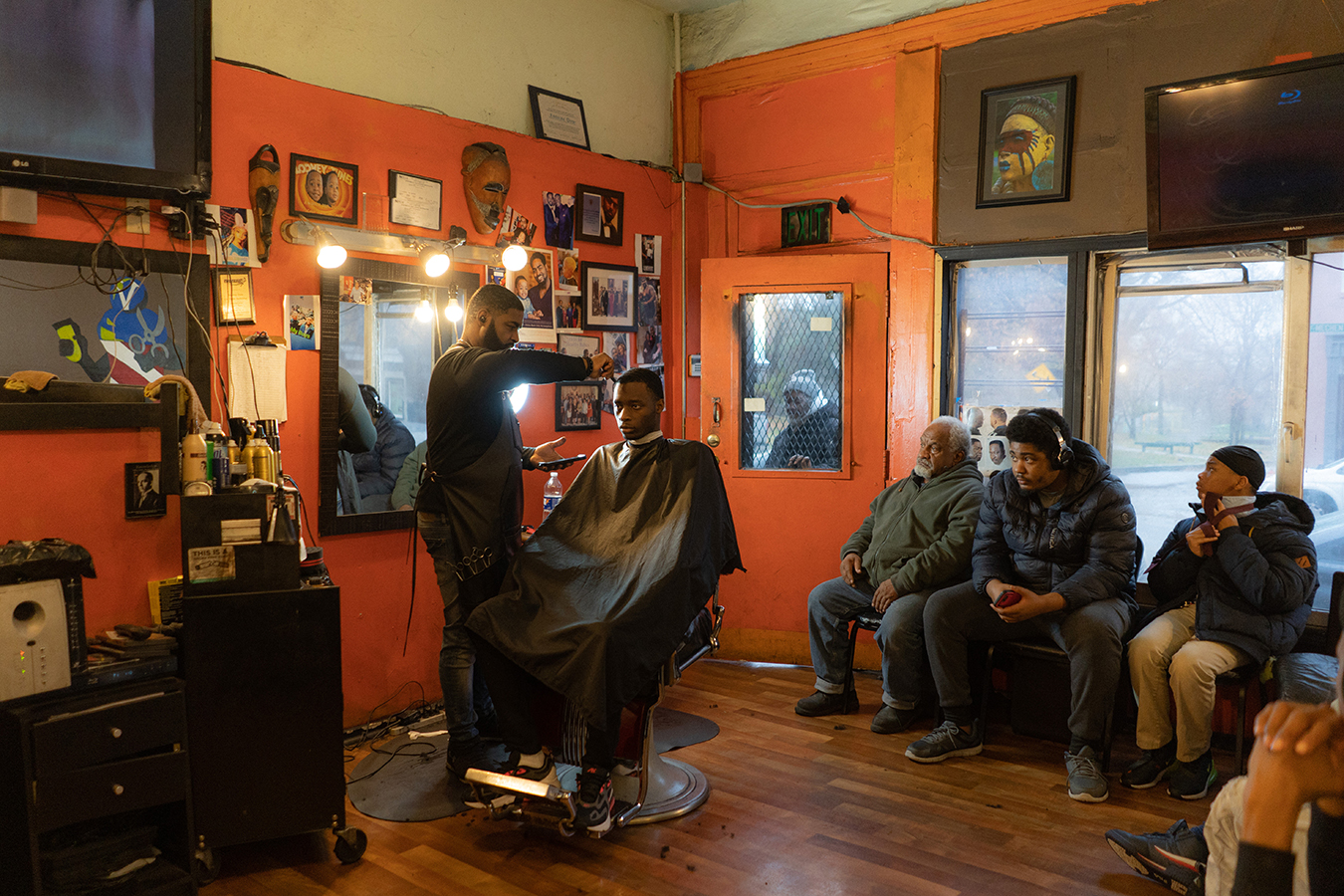
Antoine Dow cuts a customer’s hair as others wait in line at his barbershop in the Druid Heights neighborhood of West Baltimore.(Nate Palmer for KHN)
BALTIMORE — The barber had with him his tools of trade: a black leather smock, a razor, clippers, scissors and tufts of black locks he had collected from the floor of his shop.
He would use them to try to cover the bullet hole that tore through his client’s head.
Antoine Dow owns a barbershop in the Druid Heights neighborhood of West Baltimore and has often been called upon to provide clients who have been gunned down with their final haircut. It’s a ritual that he says helps bring some dignity to the young black men whose lives are disproportionately affected by gun violence, many of whom Dow knew and serviced while they were still alive.
“When I walked into the room and saw his body, I didn’t recognize him because the trauma to the skull was so bad,” Dow said of Deontae Taylor, 20, a young man who was killed last fall. “The entry wound was a hole and the exit wound was sewed up in the back like a football,” he said.
After he finished, he called Taylor’s mother. “I did the best I could do.”
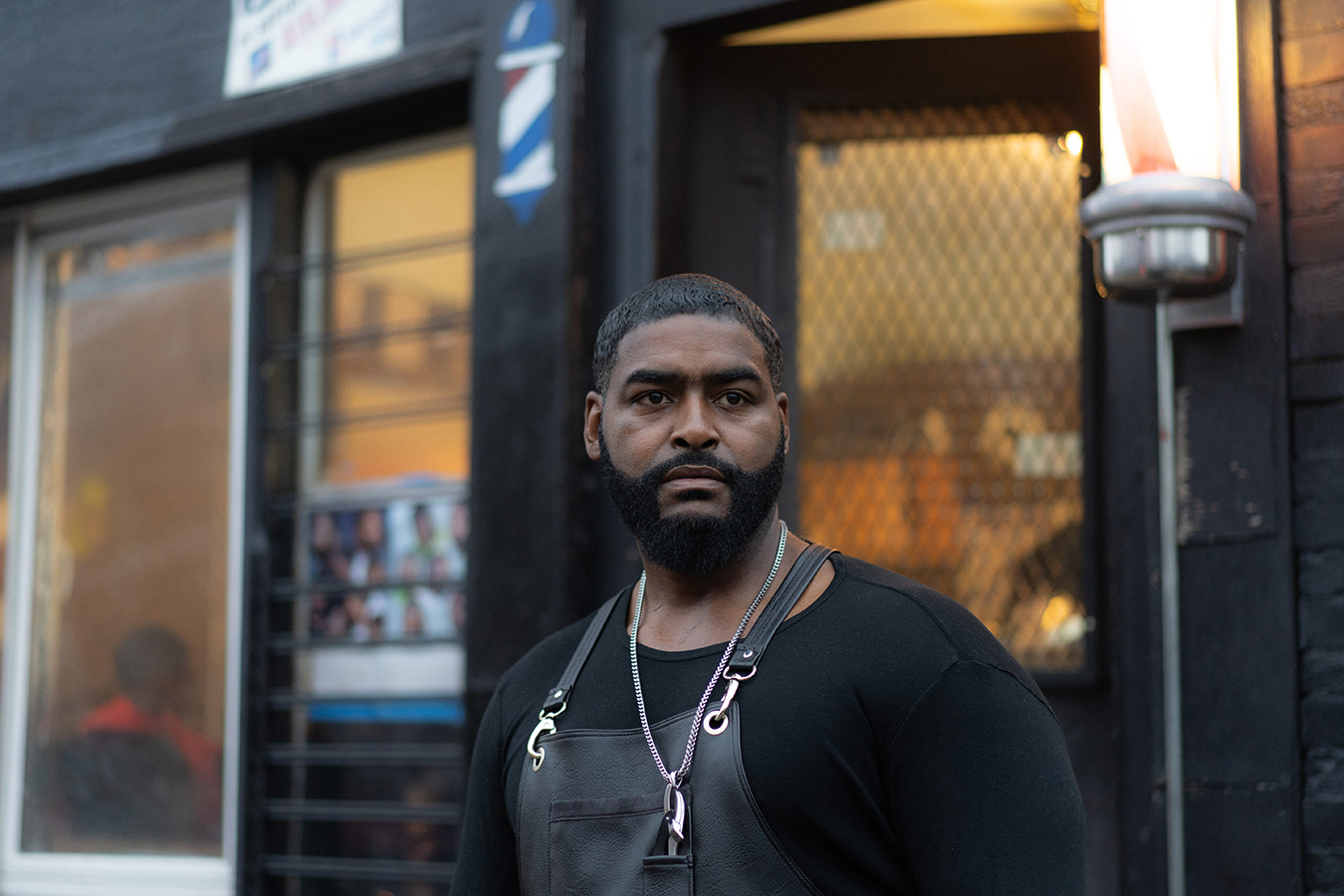
Antoine Dow has been cutting hair for 24 years. Dow, who owns a barbershop in West Baltimore, gives many of his clients their last haircut at local funeral homes, after losing them to gun violence.(Nate Palmer for KHN)
The decline in gun deaths in some major cities across the country has made headlines, but in places like Baltimore, the numbers remain high. There were 348 homicides in Baltimore last year, up more than 12% from the year before, and only five fewer than the record set in 1993. Firearms were involved in 312 of the 348 killings, according to an analysis of the latest numbers in the Baltimore Police Department Crime Stats Open Data database by Kaiser Health News.
Dow has been cutting hair for 24 years. He started when he was 19, giving haircuts to friends in his father’s basement. In 2001, at age 27, he found a small shop with a reasonable rent that had only enough room for one barber. He had the shop remodeled and has been open ever since. On Saturdays, he can be found cutting hair for as many as 70-odd clients, his barber chair positioned at the shop entrance, where he can greet each person as they enter.
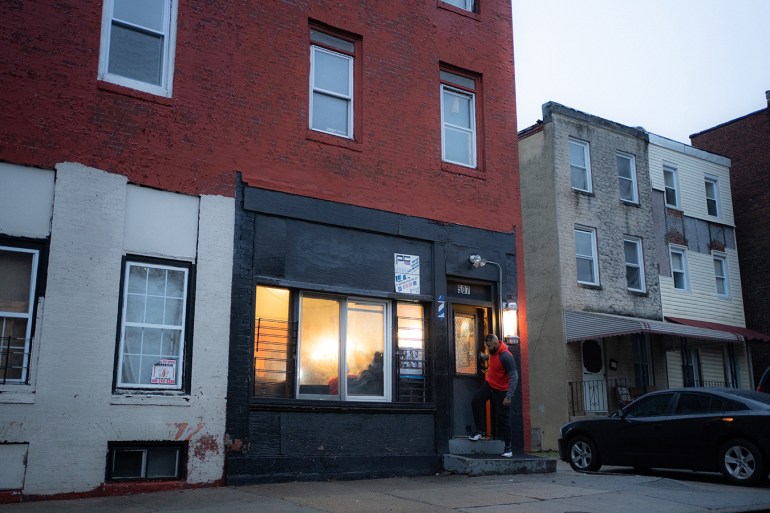
On Saturdays, the busiest day at Antoine Dow’s barbershop in the Druid Heights neighborhood of West Baltimore, Dow can be found cutting hair from 6:30 a.m. to as late as 9 p.m., cutting the hair of roughly 72 clients in a single day.(Nate Palmer for KHN)
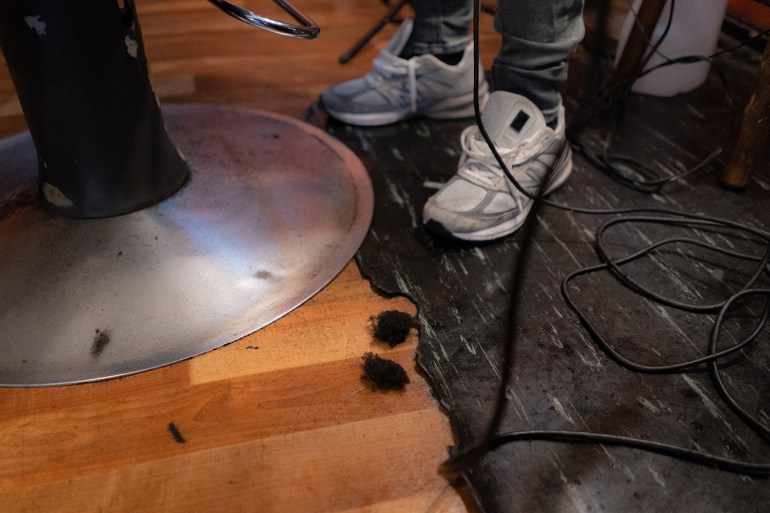
Tufts of hair lay at the feet of assistant barber Quant’e Boulware inside Antoine Dow’s barbershop in the Druid Heights neighborhood of West Baltimore. Dow has collected and incorporated such hair samples in some postmortem haircuts for his clients.(Nate Palmer for KHN)
“I always wanted my own barbershop. I pretty much knew what I wanted to do, because I enjoyed it, and people would pay me for it,” he said.
The issue of gun violence has followed Dow for years. In 2000, at a barbershop on the corner of Lafayette and Division streets in West Baltimore where he worked, Dow was shot in the leg after he tried to intervene in an argument between a client and another man. His client, Howard Robinson, 35, was shot in the back and died later that day.
Typically, funeral homes dress the bodies of the deceased and cut their hair, if necessary. But sometimes a favored barber is brought in.
Dow was 26 when he performed his first haircut for a deceased client. In that case, it was an older man who had died of natural causes, circumstances that Dow said are much easier to manage than a shooting victim. He has continued to take on the difficult task of providing haircuts for clients who have been killed, for a straightforward reason, as he sees it — “because I cut their hair while they were alive.”
And as his business has expanded, Dow has hired other barbers who have also learned the trade of post-mortem hair cutting.
Quant’e Boulware, 24, has worked for Dow the past four years and has cut the hair of two customers no longer alive. One was a 2-year-old child who died in a car crash — his godson. “I rather me cut his hair than somebody else,” he said softly.
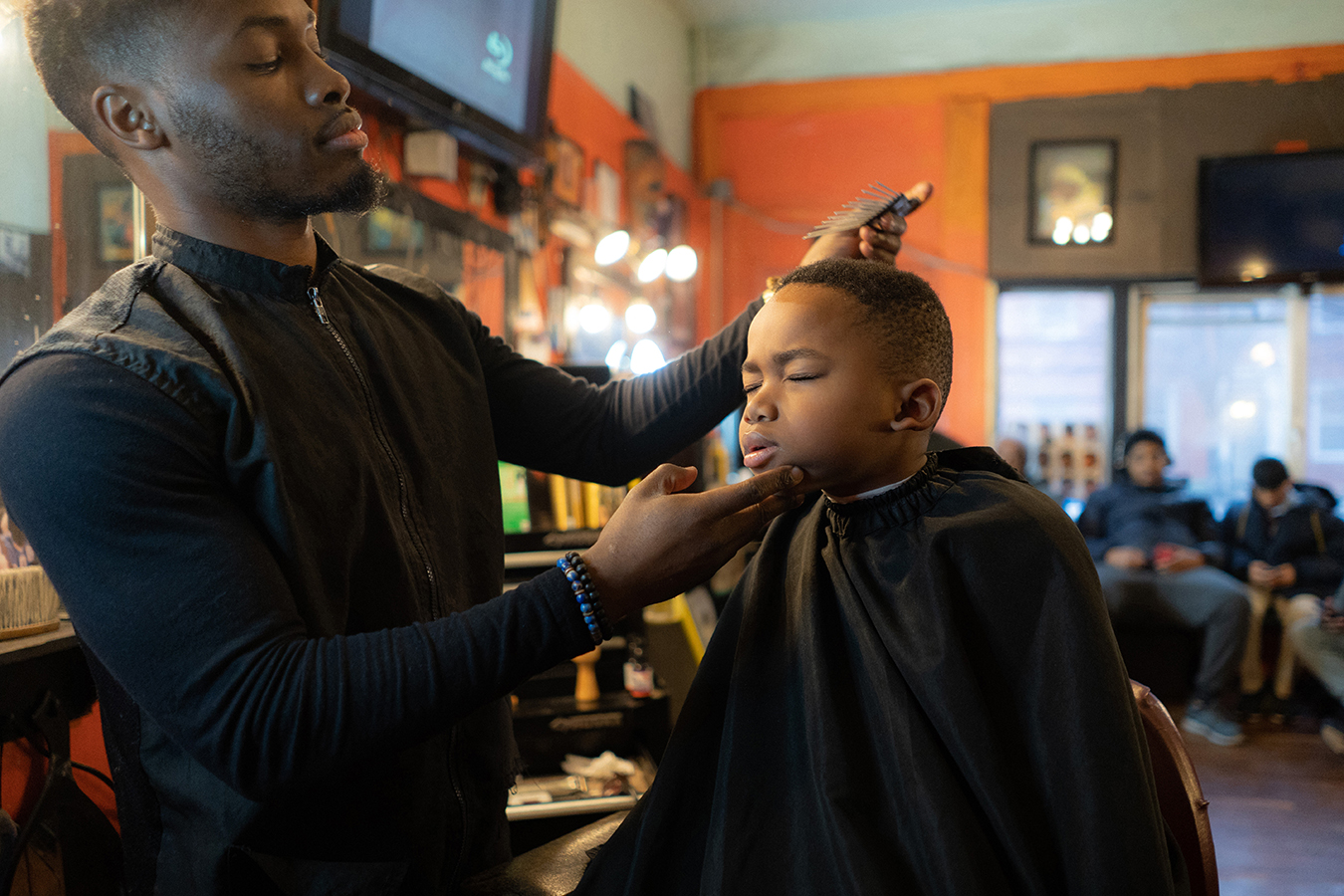
Quant’e Boulware combs the hair of Davonte Robinson before cutting his hair.(Nate Palmer for KHN)
When clients leave Dow’s shop, he said he tells them to “please be safe,” but he knows that can be hard in a city like Baltimore. He estimates that as many as eight of his clients were murdered in the last year alone.
Dontae Breeden, one of Dow’s younger clients, said that he and his peers often feel invisible in a city where violence is so common and that some young men turn to gun violence out of desperation. “People just want to be known for something,” said Breeden, 22. “They just want recognition.”
Rashad Jones has been a client of Dow’s for three years. In March 2019, he was shot at a bus stop on East Northern Parkway after work. Not only has Jones lost two of his best friends to gun violence this year, but in 2013 his brother was shot and paralyzed from the waist down at age 25.
The barbershop is one of the few places in West Baltimore where Jones, 29, said he feels safe and Dow has tried to provide that comfort to his clients, both in life and in death.
He talks to his clients while cutting their hair, even those who have passed away, like the young man who had been shot in the head.
“I was talking to him while I was cutting his hair, like I do a lot of my deceased clients,” said Dow. “I just said, you know, ‘I hope you rest well.’”
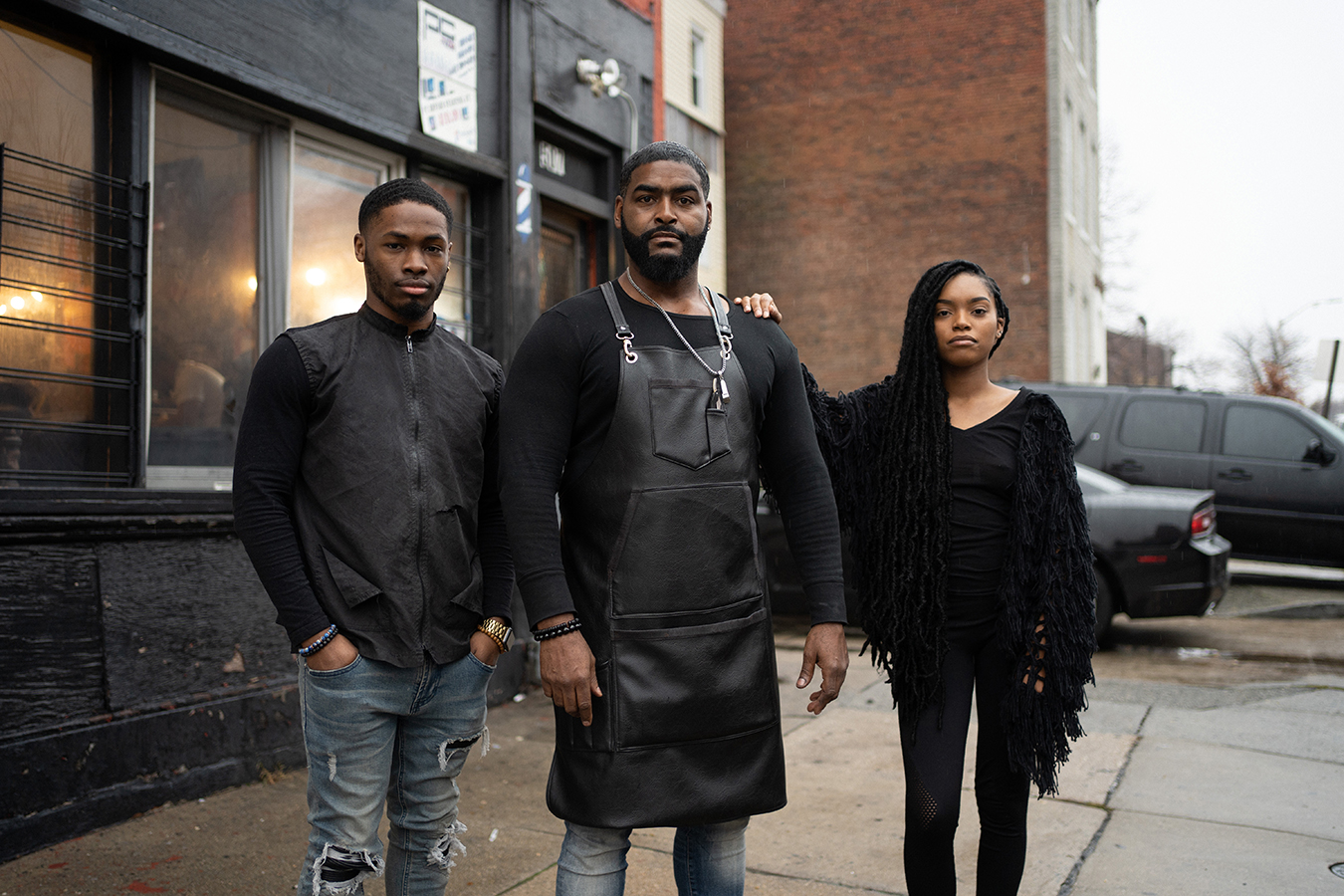
Antoine Dow (center) stands outside his West Baltimore barbershop with one of his assistant barbers, Quant’e Boulware (left), and Dow’s daughter, Akerah Dow, who runs a hair salon across the street from her father’s barbershop.(Nate Palmer for KHN)
KHN reporter Victoria Knight contributed to this article.






